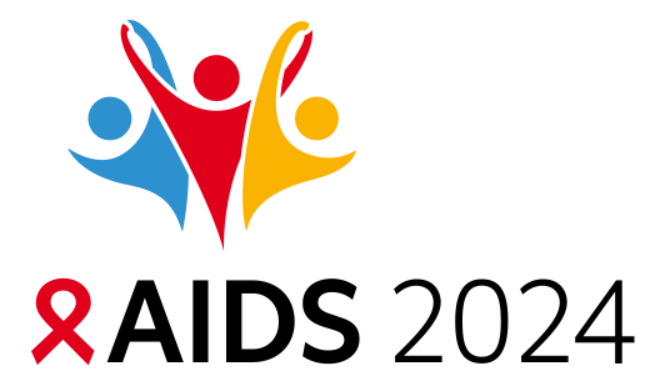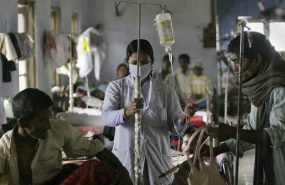The Global Fund eligibility list for 2019
- 13.03.2019 13:35
- Post Views: 1,970
You may access it here: Global Fund Eligibility List 2019.
On page 11 and 12, the document lists all the changes in country eligibility status. The EECA countries affected by changes are Armenia, Bulgaria, Kosovo, Macedonia, Romania, Russia and Turkmenistan.
· Armenia was classified as an Upper-Middle Income country in the 2018 Eligibility List and the HIV/AIDS disease burden classification is ‘Not High.’ As a result, the HIV component is eligible for Transition Funding for the 2020-2022 allocation period.
· Armenia’s TB disease burden classification changed from ‘Moderate’ in 2018 to ‘High’ in the 2019 Eligibility List, resulting in one determination of eligibility. Country components must be eligible for two consecutive eligibility determinations to be classified as eligible on the Eligibility List. If this component has a second determination of eligibility in 2020, it will eligible for the 2020-2022 allocation period; if it does not, it will be eligible for Transition Funding in the 2020-2022 allocation period.
· Since Bulgaria is not on the OECD DAC list of ODA recipients, Bulgaria may be eligible for an allocation for HIV/AIDS for non-governmental or civil society organizations under Paragraph 9b of the Eligibility Policy if there are demonstrated barriers to providing funding for interventions for key populations, as supported by the country’s epidemiology. The Secretariat will assess whether the criteria have been met at the time of determining allocations for the 2020-2022 allocation period.
· Kosovo is newly classified as an Upper-Middle Income country based on the latest three-year average of GNI per capita data (Atlas method). Kosovo’s HIV/AIDS and TB burden are ‘Not High’, as a result both the HIV/AIDS and TB components are now eligible for Transition Funding for the 20202022 allocation period.
· Macedonia’s HIV/AIDS disease burden classification changed to ‘Low’ in 2018 to ‘High’ in the 2019 Eligibility List, resulting in one determination of eligibility. Country components must be eligible for two consecutive eligibility determinations to be classified as eligible on the Eligibility List.
· Since Romania is not on the OECD DAC list of ODA recipients, Romania may be eligible for an allocation for HIV/AIDS for non-governmental or civil society organizations under Paragraph 9b of the Eligibility Policy provided that they have demonstrated barriers to providing funding for interventions for key populations, as supported by the country’s epidemiology. The Secretariat will assess whether the criteria have been met at the time of determining allocations for the 2020-2022 allocation period.
· For 2019, the Russian Federation has met two consecutive determinations of eligibility based on income classification and disease burden. Since the Russian Federation is not on the OECD DAC list of ODA recipients, the Russian Federation may be eligible for an allocation for HIV/AIDS for nongovernmental or civil society organizations under Paragraph 9b of the Eligibility Policy provided that they have demonstrated barriers to providing funding for interventions for key populations, as supported by the country’s epidemiology. The Secretariat will assess whether the criteria have been met at the time of determining allocations for the 2020-2022 allocation period
· Turkmenistan’s TB disease burden classification changed from ‘Moderate’ in 2018 to ‘High’ in the 2019 Eligibility List, resulting in one determination of eligibility. Country components must be eligible for two consecutive eligibility determinations to be classified as eligible on the Eligibility List. Turkmenistan TB received Transition Funding for the 2017-2019 allocation period.
Related News
Global Fund Strategy Development – Open Consultation Questions
COVID-19 is radically altering global health, politics and economics, and the impact upon programs fighting HIV, TB and malaria will likely be tremendous. The new pandemic could completely derail our vast efforts of the past 20 years. At the same time, it has galvanized public awareness on global health security in a way that builds […] Read moreGlobal Fund Technical Brief Tuberculosis, Gender and Human Rights
The purpose of this technical brief is: to assist Global Fund applicants to consider how to include programs to remove human rights and gender-related barriers to tuberculosis prevention, diagnosis and treatment services within funding requests, and to help all stakeholders ensure that TB programs promote and protect human rights and gender equality. Post Views: 679 Read moreGlobal Fund Technical brief on HIV and key populations Programming at scale with sex workers, men who have sex with men, transgender people, people who inject drugs, and people in prison and other closed settings
The purpose of this technical brief is to provide information for countries preparing funding requests for comprehensive programs that address the cascade of HIV prevention, diagnosis, treatment, and care for the following key populations: male, female, and transgender sex workers, gay men and other men who have sex with men, transgender people (especially transgender women), […] Read moreEECA Region Space Schedule during AIDS 2024

Welcome to the EECA Region Space at the Global Village during AIDS 2024 Conference! Our dedicated space at the Global Village is designed to highlight the unique perspectives and experiences of the EECA region, fostering collaboration and inspiring action. Join us for a series of engaging sessions, workshops, and presentations that will explore a wide range of topics.
Services for migrants and refugees from Ukraine – HIV/TB care with a focus on key populations
Due to the increasing flows of refugees from Ukraine because of Russia’s invasion of Ukraine, the EECA Regional Platform created a spreadsheet to fill contacts details of face-to-face and online services for refugees and migrants (with a focus on HIV/TB care and key population groups).
Regional Platform – EECA
This web-resource is a part of new regional communication and coordination project “Regional Civil Society and Community Support, Coordination and Communication Platform - EECA”, implemented by Eurasian Harm Reduction Association (EHRA).
Tags
See also
-
Events with Global Fund Speakers at AIDS 2024 17.07.2024 14:43
-
EECA Region Space Schedule during AIDS 2024 12.07.2024 11:14
-
Two Requests for Proposals from the Global Fund 04.07.2024 11:42
-
EECA’s Regional Platform monthly Newsletter #6, July 2024 04.07.2024 11:28







